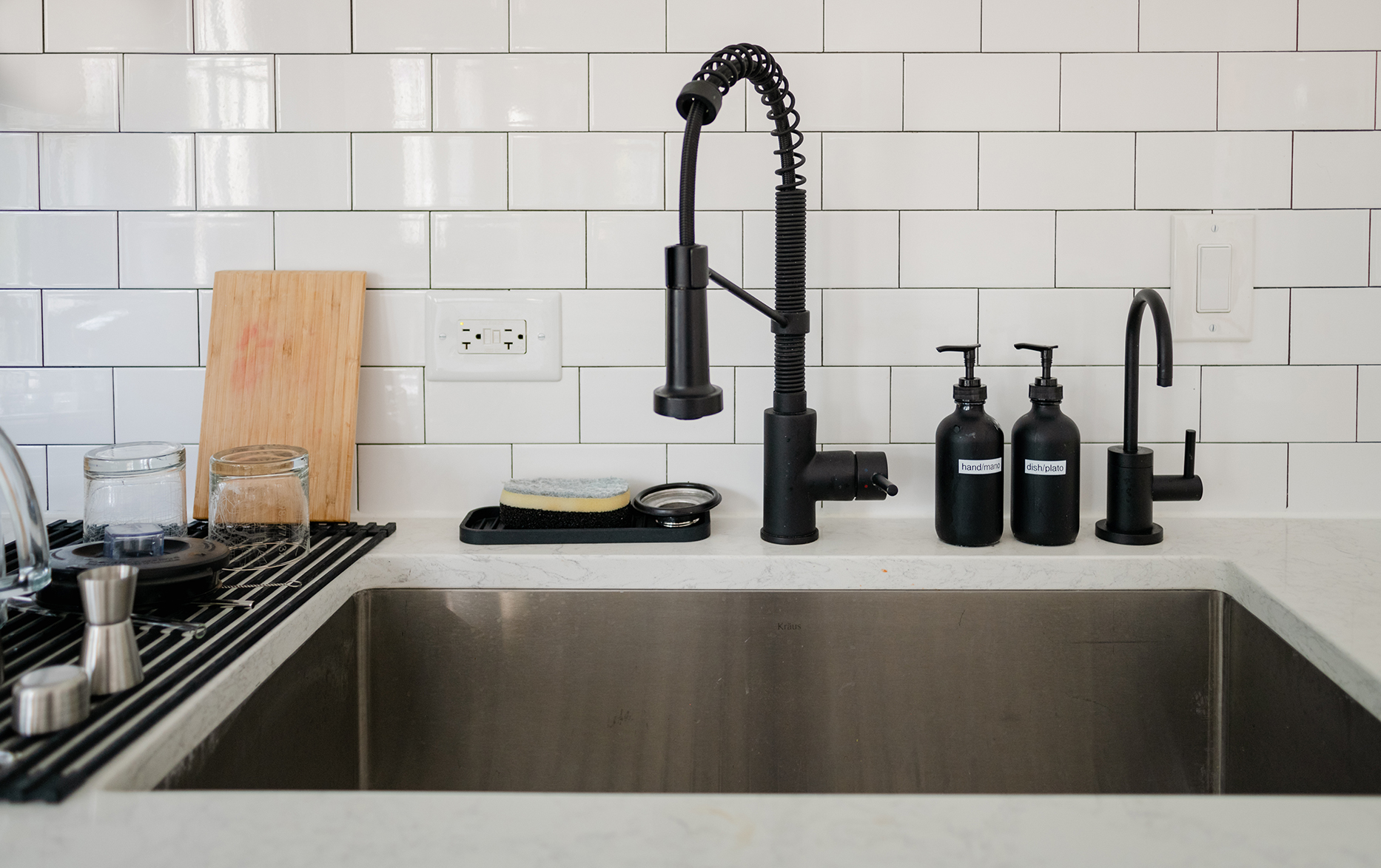

Cleaning your kitchen drains is an important part of home maintenance. Pipes under your kitchen sink endure a daily barrage of greasy, fatty and oily bits of food on a daily basis, which tend to solidify when cooled. Homes with newer plumbing containing PVC or copper pipes are better suited to handle these sticky, grimy materials, but older homes with more narrow iron plumbing can easily clog if not properly maintained, with backups and all the gross drain smells that come with them.
Your best weapon against clogged, stinky drains is to avoid accumulation of the dreaded F.O.G. trio (fats, oil and grease). High-fat substances such as bacon grease, meat trimmings, lard or even peanut butter should be kept out of the drain, and instead disposed of in the trash after cooling. Coffee grounds are clog creators as well, accumulating in pipes and leading to blockages and foul odors.
The age-old method of using a cup of baking soda and vinegar to fight clogged drains is ineffective. The fizzy reaction looks like the materials are dissolving, but they're not. Baking soda acts a base to the acidic qualities of vinegar, and combining them creates a chemical reaction which produces water with trace amounts of salt. This is not strong enough to clear a drain. Neither ingredient is a surfactant, either, so they will do little to help carry away the loose oil and grease.
You don't have to pull out the rubber gloves and resort to toxic, caustic chemicals to clean a drain. Simple Green All-Purpose Cleaner's biodegradable* degreasing and deodorizing power helps prevent grease, fat and oil buildup that can cause clogs and foul odors.
Directions:
Works well when used every 2 weeks for large households, or once a month for smaller households.